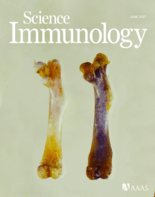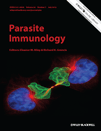
JOURNAL OF EXPERIMENTAL MEDICINE
Scope & Guideline
Pioneering Discoveries in Experimental Medicine
Introduction
Aims and Scopes
- Immunology and Immune Response:
The journal publishes research exploring the mechanisms of immune responses, including the roles of various immune cells, cytokines, and signaling pathways in health and disease. This includes studies on T cells, B cells, innate lymphoid cells, and their interactions with pathogens. - Cancer Immunotherapy:
A significant focus is on the development and evaluation of cancer immunotherapies, including checkpoint inhibitors, CAR-T cell therapies, and vaccine strategies. Research often investigates the mechanisms of tumor immune evasion and the potential for enhancing anti-tumor immunity. - Autoimmunity and Inflammation:
The journal features studies examining the underlying mechanisms of autoimmune diseases and chronic inflammatory conditions, including the roles of autoantibodies and immune cell dysregulation. - Infectious Diseases:
Research related to the immune response to infectious agents, including viral, bacterial, and parasitic infections, is a core area. The journal emphasizes understanding host-pathogen interactions and the development of therapeutic strategies. - Cellular and Molecular Mechanisms:
Papers often delve into the cellular and molecular basis of disease, including studies on signaling pathways, gene regulation, and cellular metabolism that influence immune function and disease outcomes. - Translational Medicine:
The journal aims to bridge basic research with clinical applications, encouraging studies that translate findings from the laboratory into potential therapeutic interventions for various diseases.
Trending and Emerging
- Single-Cell Analysis Techniques:
There is a notable increase in studies utilizing single-cell RNA sequencing and other single-cell technologies to dissect cellular heterogeneity within the immune system and tumors. This trend underscores the importance of understanding individual cell behaviors in complex biological systems. - Personalized and Precision Medicine:
Research focusing on personalized approaches to immunotherapy, including the identification of biomarkers for treatment response and tailoring therapies to individual patient profiles, is rapidly emerging as a significant theme. - Microbiome and Immune Interactions:
Studies exploring the relationship between the microbiome and immune system health are increasingly featured. This includes research on how gut microbiota influence immune responses and disease outcomes. - Inflammation and Metabolism:
The intersection of metabolic processes and immune function is gaining attention, with research investigating how metabolic pathways influence immune cell behavior and chronic inflammation. - Therapeutic Target Identification:
There is a growing trend towards identifying and validating novel therapeutic targets within the immune system and cancer biology, reflecting the journal's commitment to translational research.
Declining or Waning
- Basic Virology:
Research focused solely on the basic virology of pathogens, without a strong emphasis on immune responses or therapeutic implications, has seen a decline. The journal increasingly favors studies that link virology with immunological outcomes. - In vitro Studies Without Clinical Relevance:
There appears to be a waning interest in in vitro studies that do not translate to in vivo or clinical contexts. The journal favors studies that provide insights into real-world applications or mechanisms in living systems. - Non-immune Cell Focused Research:
Research that primarily focuses on non-immune cells in isolation, without considering their interactions with the immune system, has become less prominent. The journal emphasizes the importance of immune cell interactions.
Similar Journals

CELLULAR IMMUNOLOGY
Connecting Scholars in Cellular ImmunologyCELLULAR IMMUNOLOGY is a prestigious journal published by Academic Press Inc. Elsevier Science, dedicated to advancing the field of immunology. Established in 1970 and converging ongoing research up to 2024, this journal has carved out a significant niche within the academic community, boasting a notable Q2 ranking in the Immunology category and holding a respectable 67th percentile ranking within Scopus for its contributions to the disciplines of Immunology and Microbiology. The journal serves as a vital platform for disseminating high-quality research, reviews, and methodologies that elucidate the intricacies of cellular immune responses, thereby benefiting researchers, professionals, and students alike. Although it does not offer open access, the journal's impact is evidenced by its comprehensive coverage of pioneering studies and ongoing developments in the immunological sciences, positioning it as an essential resource for those seeking to deepen their understanding and engage with the latest findings in cellular immunology.

JOURNAL OF IMMUNOLOGY
Empowering the Future of Immune ResearchWelcome to the JOURNAL OF IMMUNOLOGY, a prestigious publication associated with the American Association of Immunologists and dedicated to advancing the field of immunology. With a rich history dating back to 1945, this journal is renowned for its high-impact research, evident in its notable 2023 Q1 rankings in both Immunology and Allergy, as well as its strong positions in Scopus rankings—Rank #68 in Immunology and Allergy and Rank #79 in Immunology and Microbiology. Although it operates on a subscription basis, its commitment to publishing cutting-edge studies ensures that it remains a vital resource for scientists, healthcare professionals, and students alike. As the journal continues to pave the way for innovative research and breakthroughs in immunological science, it facilitates a platform for dialogue and discovery among researchers and practitioners across the globe.

ARCHIVUM IMMUNOLOGIAE ET THERAPIAE EXPERIMENTALIS
Pioneering Insights in Experimental TherapiesARCHIVUM IMMUNOLOGIAE ET THERAPIAE EXPERIMENTALIS, published by DE GRUYTER POLAND SP Z O O, stands as a pivotal journal in the field of immunology, contributing significantly to the advancement of knowledge and therapy in this crucial area of medicine since its inception in 1954. With an ISSN of 0004-069X and an E-ISSN of 1661-4917, the journal operates out of Switzerland, catering to an international audience of researchers, practitioners, and students. As reflected in its Scopus rankings, the journal is positioned within the third quartile in both Immunology and Allergy (Q3) and holds a commendable second quartile in Medicine (miscellaneous) (Q2), indicating its respectable influence within the academic community. The journal publishes original research, reviews, and clinical studies, offering a platform for exploring cutting-edge developments in immunological therapies and experimental methods. Although not currently an open-access journal, it continues to thrive as a valuable resource, reflecting a commitment to disseminating high-quality research and fostering academic discourse in the field. Researchers and professionals alike will find ARCHIVUM IMMUNOLOGIAE ET THERAPIAE EXPERIMENTALIS an essential reference source for the latest advancements in immunological research and clinical applications.

NATURE IMMUNOLOGY
Advancing immunological frontiers with groundbreaking research.NATURE IMMUNOLOGY is a premier academic journal published by NATURE PORTFOLIO, dedicated to advancing the field of immunology. With an impressive impact factor that reflects its esteemed position, this journal ranks in the top quartile (Q1) of renowned categories, including Immunology and Allergy. Serving as a crucial platform for researchers, professionals, and students, NATURE IMMUNOLOGY showcases cutting-edge research, comprehensive reviews, and insightful perspectives that drive innovation in immunological science. Based in the United Kingdom, this journal has been a vital contributor to the global discourse on immune responses and related diseases since its inception in 2000. Researchers can benefit from its rigorous peer-review process, ensuring that only high-quality studies are disseminated, thus enhancing their academic pursuits and practical applications. Explore the latest findings and trends within this flourishing discipline, making NATURE IMMUNOLOGY an essential resource for anyone engaged in the study of the immune system.

Cellular & Molecular Immunology
Exploring the Depths of Cellular DefenseCellular & Molecular Immunology is a prestigious peer-reviewed journal published by the CHIN SOCIETY IMMUNOLOGY. As a leading journal in the fields of immunology and infectious diseases, it proudly holds a Q1 designation across multiple categories, including Immunology, Allergy, and Medicine (Miscellaneous), reflecting its commitment to excellence and impactful research. With an ISSN of 1672-7681 and an E-ISSN of 2042-0226, the journal has been essential reading since its inception in 2004, continuously gathering insights from cutting-edge studies. It ranks impressively within Scopus, with positions in the 7th, 8th, and 9th percentile in relevant categories, establishing it as a cornerstone for researchers, clinicians, and students alike. The journal offers an extensive range of original research articles, reviews, and clinical studies, ensuring that readers stay at the forefront of immunological discovery. Whether you are interested in basic immunology, infectious diseases, or evolving therapies, Cellular & Molecular Immunology serves as an invaluable resource for advancing your knowledge and engagement in this dynamic field.

Immune Network
Leading the Charge in Immunological DiscoveriesImmune Network is a prestigious journal dedicated to disseminating high-quality research in the field of immunology, infectious diseases, and allergy, under the esteemed KOREA ASSOCIATION OF IMMUNOLOGISTS. Founded in 2016, this journal has quickly ascended to a top-tier publication, achieving Q1 rankings in 2023 in multiple relevant categories, including Immunology, Allergy, and Infectious Diseases. With a strong emphasis on innovation and interdisciplinary research, Immune Network appeals to a diverse audience of researchers, professionals, and students keen on advancing the understanding of immune responses and disease mechanisms. However, it is crucial to note that the journal operates under a subscription model without open-access provisions. Its impact factor further solidifies its reputation, reflecting the significant influence of the articles published. Located in South Korea, the journal serves as a global platform for sharing revolutionary insights and fostering collaborations within the immunology community.

Science Immunology
Fostering Interdisciplinary Dialogue in ImmunologyScience Immunology, published by the American Association for the Advancement of Science, is a leading journal in the field of immunology, recognized for its significant impact and rigor in advancing our understanding of immune responses and complex diseases. With an impressive impact factor that places it in the Q1 category of both immunology and allergy, as well as miscellaneous medicine, this journal is ranked #7 and #8 in their respective Scopus categories, reflecting its high-quality research output. Since its inception in 2016, Science Immunology has been at the forefront of interdisciplinary immunological research, fostering crucial insights that link immunology with pressing health challenges. The journal is committed to providing open access to its content, ensuring that groundbreaking findings are accessible to a global audience of researchers, professionals, and students. Its anthology not only addresses fundamental immunological mechanisms but also enhances the dialogue on translational applications and therapeutic interventions, solidifying its position as an essential resource within the scientific community.

PARASITE IMMUNOLOGY
Unraveling the Mysteries of Parasitic Interactions.PARASITE IMMUNOLOGY, published by Wiley, is a leading journal in the field of immunology and parasitology, with an ISSN of 0141-9838 and E-ISSN of 1365-3024. Since its inception in 1979, it has played a pivotal role in advancing our understanding of host-parasite interactions, immunological responses to parasitic infections, and the mechanisms of immunological resistance. The journal is adeptly positioned within the academic community, currently holding a prestigious Q2 ranking in Parasitology and a Q3 ranking in Immunology for 2023, indicating its significant influence and relevance. Its comprehensive scope attracts a diverse readership, contributing to the discourse surrounding novel therapeutic approaches and emerging challenges in parasitic diseases. With a consistent convergence of research until 2024, PARASITE IMMUNOLOGY is an essential resource for researchers, professionals, and students seeking to deepen their knowledge and foster collaboration in these dynamic fields. Although it is not an open-access journal, the insights shared within its pages are invaluable for shaping future research trajectories.

IMMUNOBIOLOGY
Elevating research standards in the fields of immunity and hematology.IMMUNOBIOLOGY is a prestigious academic journal published by Elsevier GmbH that significantly contributes to the fields of hematology and immunology. With its ISSN 0171-2985 and E-ISSN 1878-3279, this journal has been disseminating impactful research since 1979, positioning itself at the forefront of immunological and hematological advances. The journal holds a commendable ranking of Q2 in Hematology and Q3 in both Immunology and Immunology and Allergy, indicating its relevance and influence within the scientific community, as reflected by its Scopus rankings. Although IMMUNOBIOLOGY operates under a subscription model, it remains dedicated to expanding knowledge across disciplines, fostering innovative research, and facilitating connections among researchers, professionals, and students. Situated in Munich, Germany, this journal is continually evolving and aims to remain an essential resource for the latest discoveries and insights in the realms of immunity and blood disorders, ultimately enhancing our understanding of complex biological systems.

IMMUNOLOGY AND CELL BIOLOGY
Connecting Researchers in the Realm of Immunology and Cell ScienceIMUNOLOGY AND CELL BIOLOGY, published by Wiley, serves as a prominent platform for disseminating cutting-edge research in the fields of immunology and cell biology. With an ISSN of 0818-9641 and an E-ISSN of 1440-1711, this journal has established itself since its inception in 1987, demonstrating a commitment to advancing knowledge in its disciplines through high-quality articles. Renowned for its rigorous peer-review process, it holds a Q2 quartile ranking in both immunology and cell biology categories as of 2023, showing its competitive stature in these fields. IMUNOLOGY AND CELL BIOLOGY is indexed among the elite journals worldwide, with impressive Scopus rankings, including a rank of #75/233 in Immunology and Allergy. The journal’s comprehensive scope ensures that it caters to an audience of researchers, professionals, and students who are dedicated to exploring the intricate mechanisms of immune responses and cellular interactions. Although it does not operate under an open access model, its subscription-based content remains invaluable for those seeking to broaden their understanding of immunology and cell biology. By providing a forum for significant scientific dialogue, IMUNOLOGY AND CELL BIOLOGY continues to shape the future of research in these vital areas.